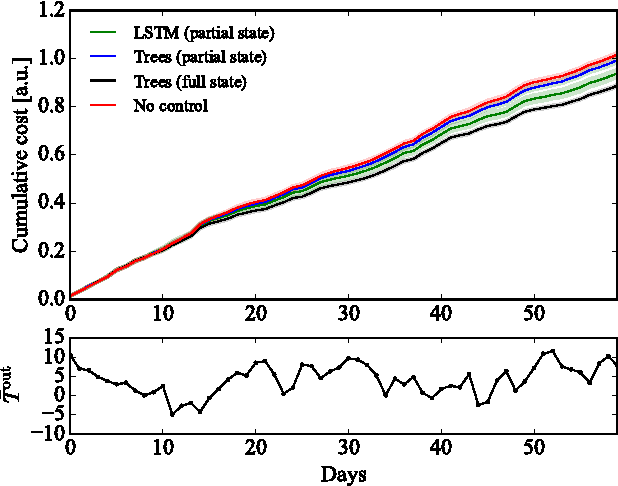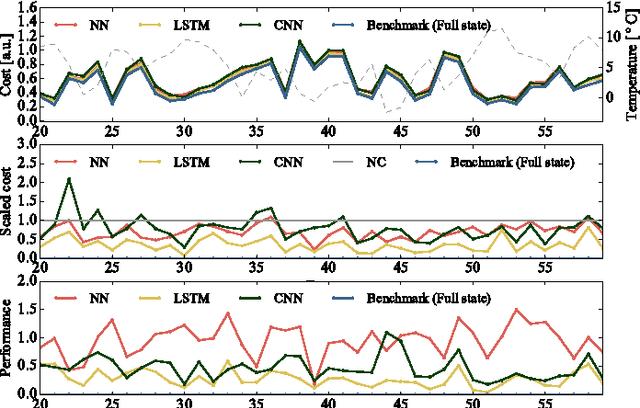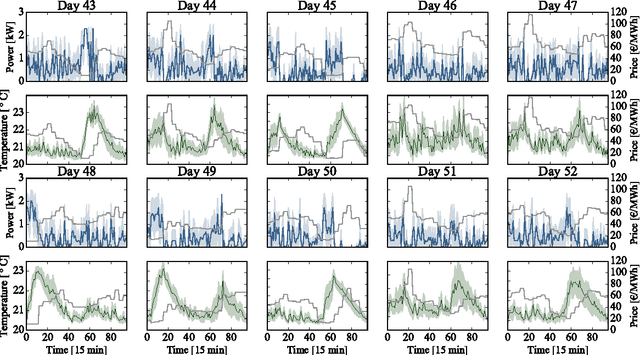Direct Load Control of Thermostatically Controlled Loads Based on Sparse Observations Using Deep Reinforcement Learning
Paper and Code
Jul 26, 2017



This paper considers a demand response agent that must find a near-optimal sequence of decisions based on sparse observations of its environment. Extracting a relevant set of features from these observations is a challenging task and may require substantial domain knowledge. One way to tackle this problem is to store sequences of past observations and actions in the state vector, making it high dimensional, and apply techniques from deep learning. This paper investigates the capabilities of different deep learning techniques, such as convolutional neural networks and recurrent neural networks, to extract relevant features for finding near-optimal policies for a residential heating system and electric water heater that are hindered by sparse observations. Our simulation results indicate that in this specific scenario, feeding sequences of time-series to an LSTM network, which is a specific type of recurrent neural network, achieved a higher performance than stacking these time-series in the input of a convolutional neural network or deep neural network.
 Add to Chrome
Add to Chrome Add to Firefox
Add to Firefox Add to Edge
Add to Edge